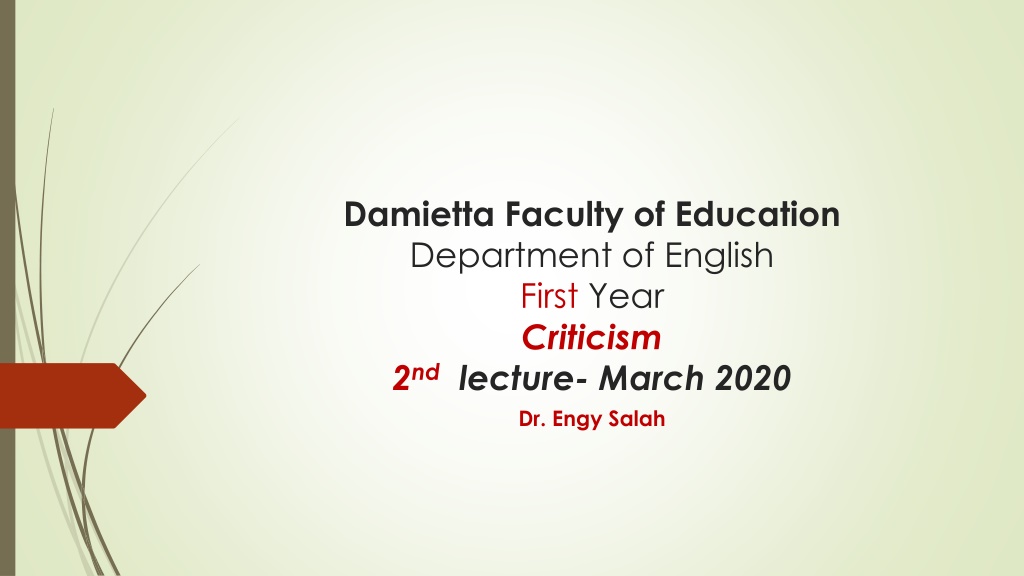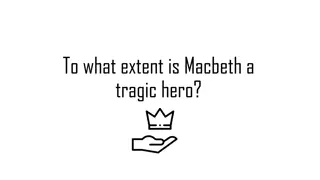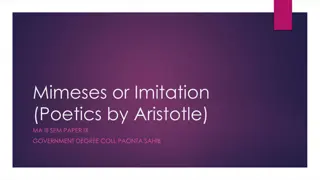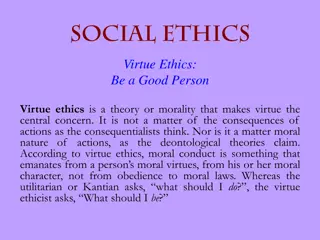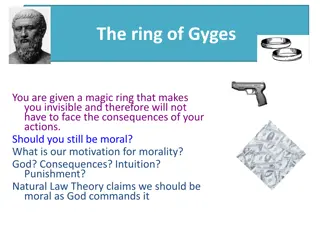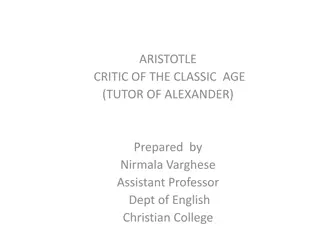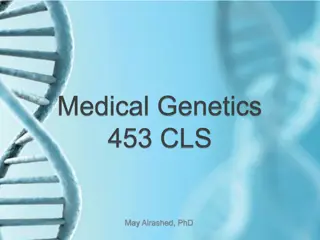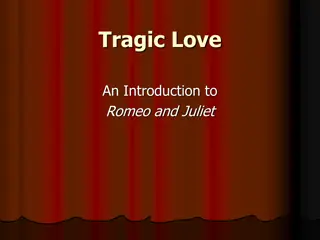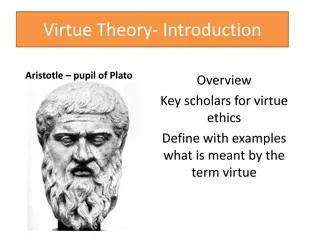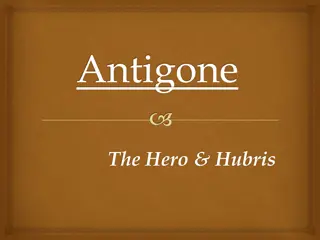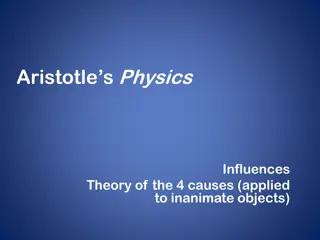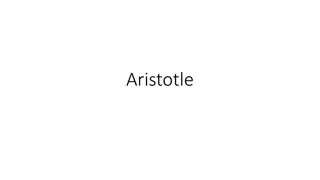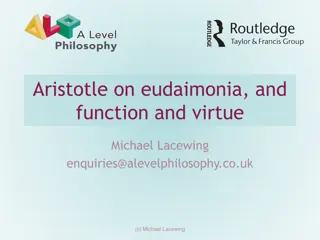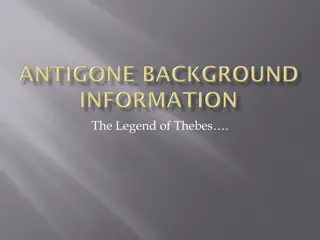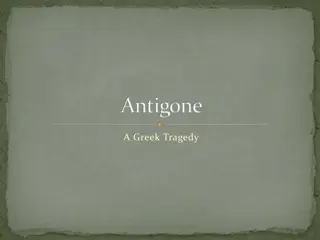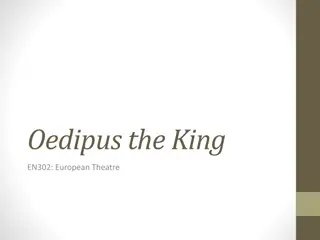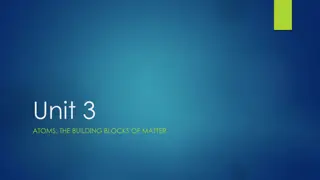Aristotle's Tragic Theory: Elements and Concepts Explained
Explore Aristotle's analysis of tragedy, including the six parts of tragedy, the definition of catharsis, the characteristics of a tragic hero, the concept of hamartia, and the comparison between epic and tragedy. Delve into the essence of tragedy as a medium for purging emotions and moral enlightenment.
Download Presentation

Please find below an Image/Link to download the presentation.
The content on the website is provided AS IS for your information and personal use only. It may not be sold, licensed, or shared on other websites without obtaining consent from the author. Download presentation by click this link. If you encounter any issues during the download, it is possible that the publisher has removed the file from their server.
E N D
Presentation Transcript
Damietta Faculty of Education Department of English First Year Criticism 2ndlecture- March 2020 Dr. Engy Salah
Aristotle (Part II)- Contents Six parts of tragedy Aristotle s definition of catharsis Tragic hero Hamartia Epic vs. tragedy
Six parts of tragedy (a) the spectacle (opsis), which is the overall visual appearance of the stage and the actors. ---- the least important element The means of imitation (language, rhythm, and harmony) can be divided into (b) melody/songs (melos), and (c) diction, (lexis) which has to do with the composition of the verses/versification of dialogues. The agents (medium) of the action can be understood in terms of (d) character(ethos) and (e) thought. Thought (dianoia) seems to denote the intellectual qualities of an agent while character seems to denote the moral qualities (ethics) of an agent. Finally, there is (f) the plot(Fable), or mythos, which is the harmonious combination/arrangements of incidents and actions in the story. ----- The most important element in the tragedy.
Aristotles definition of catharsis Catharsis as a function of tragedy Moral ennobling Purgation or purification of excessive emotions of pity and fear It forms the most important part of Aristotle s concept of tragedy as a positive, not pessimistic, drama which leaves wholesome effect.
Tragic hero A good man- coming to a bad end Shocking+ disturbs faith A bad man- coming to a good end Neither moving+ nor moral A bad man- coming to a bad end Moral +not moving A rather good man- coming to a bad end An ideal situation
Hamartia= Tragic flaw An error which is derived from ignorance of certain facts or circumstances A mistake or error of judgement The role of hamartia in tragedy comes not from its moral status but from the inevitability of its consequences. It arises from: Ignorance Hasty- careless view (Oedipus) Decision taken voluntarily but not deliberately (Lear, Hamlet) Peripeteia = tragic irony Anagnorisis= the gaining of the essential knowledge that was previously lacking
Epic vs. tragedy These are the points form the vantage point of which one could compare Tragedy and Epic : Length Metre Subject Marvelous and irrational Plot Which is superior, according to Aristotle?
Aristotle (Part II): Questions Discuss the differences between tragedy and epic. Catharsis is . While hamartia is . Whil peripeteia is , anagnorisis is .. What are the six main parts of tragedy? Determine the hamartia in the tragedies: King Lear, Macbeth, Othello, Hamlet, Oedipus Rex
Go Further: https://www.youtube.com/watch?v=9BWPREP_8Xg
Thank you Hope you are all safe and doing well till we meet Inshaa Allah Dr. Engy Salah
